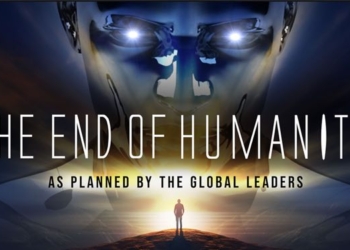
The term “metaverse” has been thrown around with abandon recently, but it seemed to come out of nowhere. Made most prevalent by Facebook CEO Mark Zuckerberg’s announcement that the company was changing its umbrella name to Meta, a nod to the metaverse, the question still remains: what is the metaverse? “Ultimately we’re talking about creating another reality, another world, that’s as rich as the real world”, explains Rev Lebaredian, vice president of tech company Nvidia. Nvidia’s Omniverse is one of the pioneering virtual platforms that is actually making it possible for different people, each in their own 3-D world, to meet and interact in a shared virtual space. This could help in facilitating video conferencing, interactive games, and even the movement of digital goods across virtual worlds.
Imagine a team of moviemakers, one in China, one in the UK and another in the USA, collaborating to create scenes for a film, one of them in charge of the lighting, another the special effects, and the third doing the animation. These kinds of exciting prospects are getting people excited, not least traders who are interested in gaining exposure to the burgeoning virtual marketplaces. They may have come across this technology through their involvement with cryptocurrencies, but now the metaverse has become a focus of interest in its own right.
Real Estate in the Metaverse
The metaverse is still being conceived and developed, because “We’re still trying to figure out the convergence of physical and digital worlds”, says tech strategist Cathy Hackl. But even in December 2021, 50,000 people attended a music festival in a place that you will find nowhere on the map – Decentraland. At Somnium Space, a new virtual reality world, you can buy virtual space for about $10,000. If you prefer the view in Decantraland or Sandbox, you’ll have to pay at least $14,000. Exclusive retailers Louis Vuitton and Gucci are already proud owners of virtual land.
People like Andrew Kiguel, CEO of Tokens.com, are very optimistic about metaverse real estate. “The more visitors who come, the more valuable the land, and the more a retailer and advertisers will be willing to spend to reach those people”, he says. Kiguel bought half of the meta real estate company called Group for $1.7 million and then paid out $2.5 million for portions of virtual land, expecting brands to grow interested in his metaspace. “I feel very, very confident about this”, he says. “I think we’re going to see a quick appreciation and monetize renting that land and space very soon”.
Highflyers in Years to Come
Facebook changed its name to Meta, indicating its intention to probe the metaverse arena in the coming years. Their Reality Labs division, which spends its time in the metaverse, already claims 20% of the company’s workforce as its own. Meta seems to be one of the companies that are set on pioneering this growing new marketplace. Gene Munster of Loup Funds expects Facebook and Apple to soon compete in producing cheap and user-friendly metaverse headsets. Munster believes that “Companies building the metaverse will surely benefit” in 2022, more than “companies with less earnings”.
Another company that is setting its own path in the metaverse is Unity, which is creating software that allows people to create their own metaverses. The company’s platform hosts 1.5 million users every month. Matteport can help you make a virtual copy of your office building and put it on the cloud. This technology could create virtual doubles of theme parks, beaches, or the Taj Mahal, but it can also be used on a simple smartphone, and this simplicity could make it useful. So far, 439,000 people count themselves as subscribers to the platform.
Around the Corner
If you want to be inspired about the future of the metaverse, take a look at what Nvidia is doing now with its Omniverse. It’s based on USD (Universal Scene Description) which was produced by Pixar. The Omniverse can simulate the way the real world works, in terms of the movements of liquids, gases and solids. It’s not just a representation of the real world in a different format: it copies the world in all its details. This amazing development is being used by BMW to create a virtual factory, run by the same software that keeps the real factory going. Ericsson has also used it to simulate the movements of 5G waves in city landscapes.
The metaverse is the next expression of blockchain technology after cryptocurrencies and NFTs. Watch out for the next bold move from any of the pioneer companies working in the field, which may open whole new possibilities in our home and work lives. The metaverse is also the subject of increasing trader enthusiasm, so keep an eye on the financial news to stay in touch with the growth of the meta giants.














